Types of Eczema and Symptoms
Eczema is a general term describing different skin conditions, but the most common type is atopic eczema, which is hereditary. Other types of eczema may exhibit similar symptoms (red skin, severe itching, and scaly skin) but they are easily distinguishable.
Types of Eczema
1. Atopic Dermatitis
Atopic dermatitis can start at infancy and progress into adulthood although some kids can overcome it. The disease results when the immune system responds to the entry of an allergen through the skin pores. A defect in the skin barrier permits easy entry of irritants, leading to inflammation and itching.
These irritants (allergens) include chemicals such as: solvents, detergents, skin care ingredients, fabrics, pollen and more. The main symptom of atopic eczema is itching resulting to severe scratching. Scratching leads to the development of painful sores on the skin, which interferes with sleep causing emotional problems such as: tiredness and irritability.

Atopic Dermatitis
2. Contact Eczema
Also called allergic contact eczema, it is an allergic reaction which occurs where the skin has come into contact with irritants. The most common irritants are acids, cleaning agents, detergents, fabrics, cosmetics, clothes, perfumes, latex, poison ivy and tobacco smoke.
Patients with the condition may have red skin patches, bumps also called hives, fluid-filled blisters, and scaly skin, which are common Contact Eczema symptoms. People suffering from this kind of eczema must identify and avoid the irritants causing the inflammation.
Check Out our Natural Bar soap here.

Contact Eczema
3. Seborrheic Eczema
The cause remains unknown, and symptoms include yellow, oily, scaly patches on the scalp and face. The condition may run in families, and unlike the other types of eczema, itching is not a symptom. Though it is hereditary, infrequent shampooing, stress, trauma to the skin and harsh weather condition will trigger the disease.

Seborrheic Eczema
4. Stasis dermatitis
It is caused by venous insufficiency, a condition that affects the lower legs mainly in adults over 50 years. Venous insufficiency weakens the veins causing fluid to leak out into the skin resulting in swelling, itching, and redness. As stasis dermatitis progresses, lessons may appear and start oozing.
Recommended treatments include wet dressing, topical creams, and antibiotics. Patients should consult a healthcare provider before using these medications.
Click here to see our Ultra Moisturizing Body Cream.

Stasis dermatitis
5. Dyshidrotic Eczema
Fluid-filled clear blisters on the palms and soles of the feet which, burn and itch characterizes this condition. The probability of developing dyshidrotic eczema increases during summer as a result of warm temperatures. Other causes include exposure to irritants. When the condition develops, avoid scratching to break the blisters and use ointment or natural creams.
Check out our Liquid Soap, especially formulated for your hands.

Dyshidrotic Eczema
6. Nummular eczema
Some of Nummular eczema symptoms include coin-shaped spots of irritated skin on the back, buttocks, arms and lower legs. That makes it easily distinguishable from other types of eczema and will itch a lot. Older men are more at risk, and it is hereditary.
Medicated dressing, antibiotics, phototherapy, and using ointments are suitable methods of revert the illness.

Nummular eczema
7. Neurodermatitis
When the symptoms of this condition appear, it will include dry, scaly patches on the arms, legs, back of the neck, and bottom of the feet. The ailment is common in women and frequently in people aged 20-50 years. A localized itch caused by an irritant such as an insect bite is attributed to the development of the disease. Reverting neurodermatitis is possible through the use of natural products such as: moisturizing creams, soaps and prescribed medications.

Neurodermatitis
Is Eczema Itchy?
Yes, eczema is itchy, and if it is not treated correctly scratching will promote the progression of the disease. Preventing severe eczema involves actions such as the use of natural creams and soaps. Bathing with natural soaps will increase the moisture content of the skin, as a result your skin will restore the natural barrier layer. Natural products will also reduce the urge to itch. Ordinary synthetic soaps should be avoided because they lack moisturizing properties and may promote loss of moisture.
Using natural soaps and creams will manage severe eczema and help you live comfortable without pain. Fell free to check our products here. Remember, to avoid lotions, steroids, and products that are too harsh on the skin and also try to live stress free.
Related articles: Is There a Cure for Eczema?





